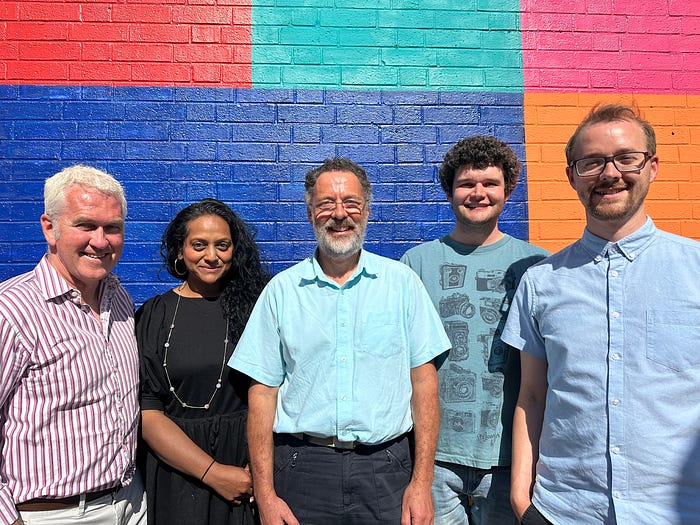Towards Future-friendly Agriculture: Our Investment in NetZeroNitrogen
The Problem with Synthetic Nitrogen Fertilizers
All plants need nitrogen to grow. In farming, we’ve historically added nitrogen and other nutrients to the soil with fertilizers (typically synthetic nitrogen fertilizers), which promotes crop growth and improves yields. In this regard, synthetic nitrogen fertilizers are one of the biggest achievements of humankind as they have enabled an industrial food system that has fed a growing human population. However, the way that this fertilizer is produced, and our overuse of it, is threatening our planet.
Today, synthetic nitrogen fertilizers are produced via the Haber-Bosch process, an industrial process combining hydrogen and nitrogen at high pressures. Yet the Haber-Bosch process requires a huge amount of energy (approximately 1% of globally produced energy). The use of these often expensive synthetic nitrogen fertilizers also has significant, negative effects on the environment. The input hydrogen for the Haber-Bosch process comes from fossil fuel in a process that releases CO2 (about 500 million tons per year), meaning that synthetic nitrogen fertilizer production is also intrinsically linked to the availability and cost of fossil fuels. This continues to be a huge challenge to food producers worldwide given the volatility of fossil fuel prices. Fertilizer represents around 40% of operating costs for farmers (depending on the crop) but price fluctuations have seen prices increase by almost 300% in the last years due to the energy crisis.
Moreover, excess use of synthetic nitrogen fertilizers leads to the release of nitrous oxide, a potent greenhouse gas. The build up of nitrogen is also known to damage productive soil and threatens biodiversity in surrounding land and water areas, causing algal blooms and nutrient imbalance.
In short, we need to find a way to grow crops without the reliance on these synthetic nitrogen fertilizers for both long-term cost reasons as well as immediate, urgent climate reasons. As commitments are made to transition to regenerative agricultural practices, this urgency continues to build.
Introducing NetZeroNitrogen
So how could we deliver essential nitrogen to plants without pumping synthetic nitrogen fertilizer into the ground? The short answer is: through naturally occurring processes that are “turbocharged” with techbio. Specifically, plants anyway rely on complex relationships with bacteria in their environment to extract naturally occurring nitrogen in the environment and use it for growth–they just do far less efficiently than with synthetic nitrogen fertilizers. Yet certain bacteria are better at this so-called “nitrogen fixation” than others, and have been shown to create a relationship with the plant to enable it to quickly grow.
The question has always been: how do we do this at scale and in a way that is competitive with synthetic nitrogen fertilizers in terms of both outcomes (plant growth and yields) and cost? This is where NetZeroNitrogen (NZN) comes in. They are building a formulation platform for growth-stimulating, nitrogen-fixing bacteria in order to find and formulate the most performant varieties of this bacteria to “turbocharge” plants. The output: an effective, natural, and cheaper alternative to synthetic fertilizer.
Their solution is based on cutting-edge research on nitrogen fixation and plant colonization. Co-founders Gary and Alan have spent cumulative decades in plant science working with nitrogen fixing bacteria and scaling synthetic biology processes, while the third co-founder, Justin, has worked at and with large organizations, adopting principles from his years in the Royal Air Force. NetZeroNitrogen’s innovative solution represents a major leap forward in sustainable agriculture. By harnessing the power of bacteria, they can reduce or eliminate the need to use synthetic nitrogen fertilizers without any “green premium”, leading to cost savings for farmers and mitigating the environmental impacts of industrialized agriculture.
Why We Invested
Synthetic nitrogen fertilizer is the consummate example of an unsustainable, double-edged sword. On one hand, it enabled us to feed a rapidly growing population over the past century. Without this Green Revolution, modern society as we know it may literally not have come into existence. And yet, if we continue down this path, the very backbone of our societies–agriculture –will also be a key factor in our demise. Between soil degradation, direct emissions, and its impact on biodiversity, synthetic nitrogen fertilizers pose a true threat to our future.
With its stepchange innovation in nitrogen-fixing bacteria, NZN believes it can reduce if not entirely eliminate the use of synthetic nitrogen fertilizer. This will not only reduce their carbon footprint, promote soil regeneration, and protect surrounding land, but will fundamentally shift the economics of farming, saving farmers money on expensive fertilizers.
We expect the pressures that farmers are under to get more acute over the next decade. With margins already squeezed, they are now being asked to reduce emissions while keeping yields stable. The energy crisis and subsequent food shortages have brought to light how sensitive this industry is to these pressures, and as climate change and water scarcity induce more risk into these industries, pressure will only increase. In this sense, there’s never been a better time to introduce real alternatives to farmers.
We are excited to lead their pre-seed round, alongside Zero Carbon Capital. With its potential to entirely transform an essential industry and make an enormous contribution to both the planet, NZN is exactly the type of ambitious company we at Revent look to back. We are thrilled to be a part of this journey. 🚀







